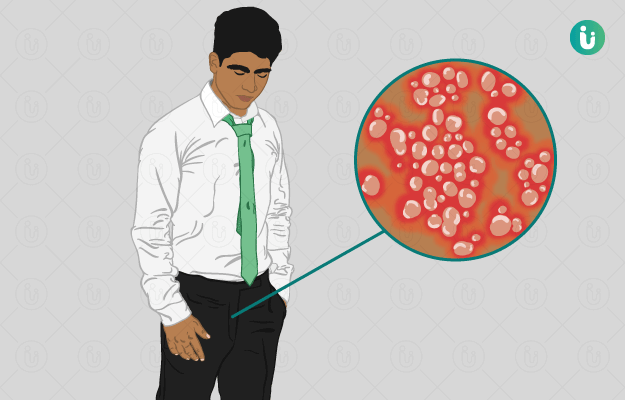What is Genital Herpes?
A sexually transmitted disease (STD), genital herpes is a common disease caused by the herpes virus. It mainly affects the genitals, anus, or oral region. This disease condition is not life-threatening like other STDs, but there is no permanent cure available.
Studies have shown that herpes can increase the risk of acquiring the human immunodeficiency virus (HIV) infection. Data pertaining to the prevalence of infection in the Indian population are limited.
What are its main signs and symptoms?
Patients will not experience any symptoms and remain unrecognized in the beginning. The first symptoms are manifested within 2 to 10 days of getting infected. Few common symptoms include
- Fever
- Headache
- Weakness
- Nausea
- Muscle pain
- Fluid-filled blisters that appear as one or more in the genitals, anus, buttocks, or lips
- Burning sensation while passing urine
- Pain in the genitals
- Vaginal discharge
The fluid-filled blisters break open and heal forming a crust without leaving a mark. This happens within 15 to 23 days of acquiring the infection. In recurrent infection, there are no flu-like symptoms and the sores are less painful. The number of blisters reduces with time and resolves within a week. Symptoms experienced by individuals may also vary.
What are its main causes?
Genital herpes is caused by two viruses: herpes simplex virus 1(HSV 1) and HSV 2. HSV 2 is the common cause of ulcers in the genitals, anus, and buttocks and HSV 1 in the oral region.
The herpes virus is transmitted during sexual intercourse from the infected sores (vaginal, anal, or oral sex). The infection may be transmitted even if there is no sore on the infected person.
How is it diagnosed and treated?
If you experience the above-mentioned symptoms, you and your partner should consult a doctor. The physician will initially collect the fluid sample from the sore (if present) to identify the virus. If sores are not seen, a blood test is carried out to detect antibodies.
Your doctor will prescribe anti-viral medicines to reduce the severity and time of recurrent infections. Medications to relieve pain are also prescribed. Unfortunately, there is no cure available, but you can reduce the spread by
- Using a condom during sex
- Avoiding sex if you or your partner has active sores
- Avoiding multiple partners

 Doctors for Genital Herpes
Doctors for Genital Herpes  OTC Medicines for Genital Herpes
OTC Medicines for Genital Herpes


















